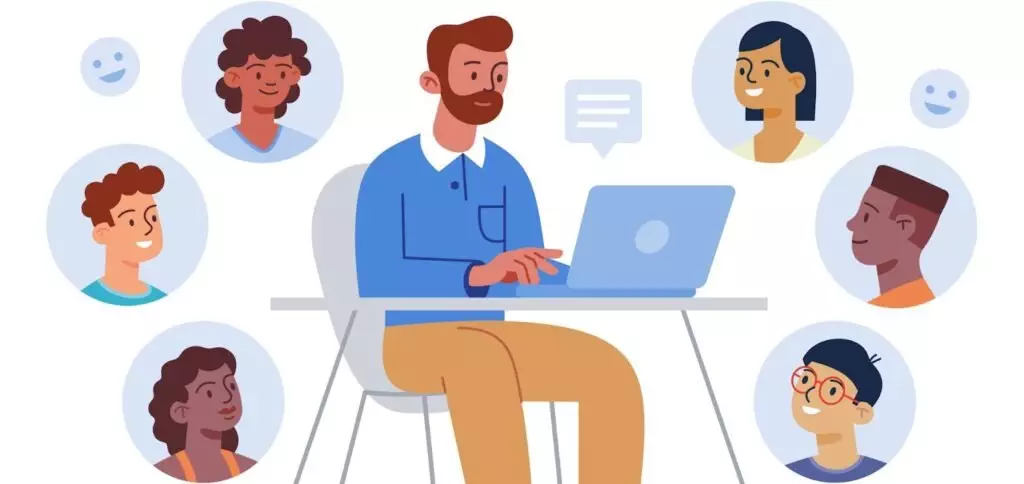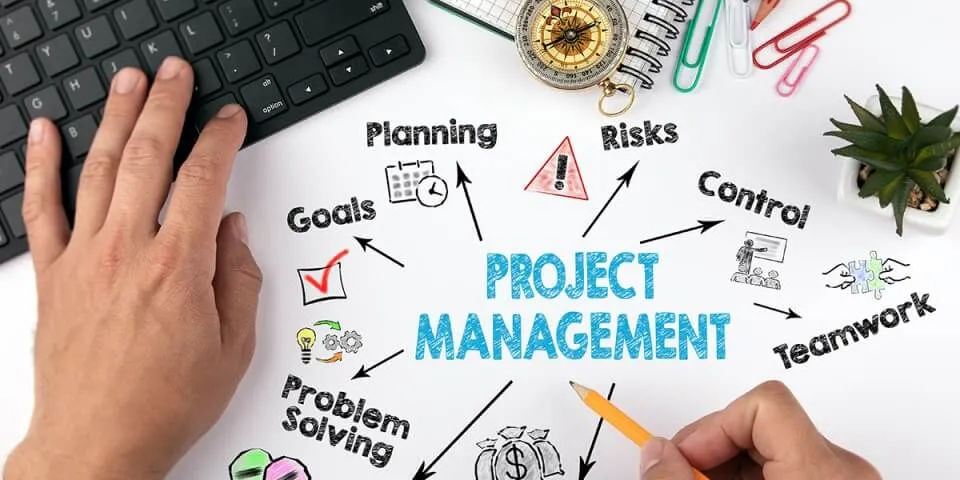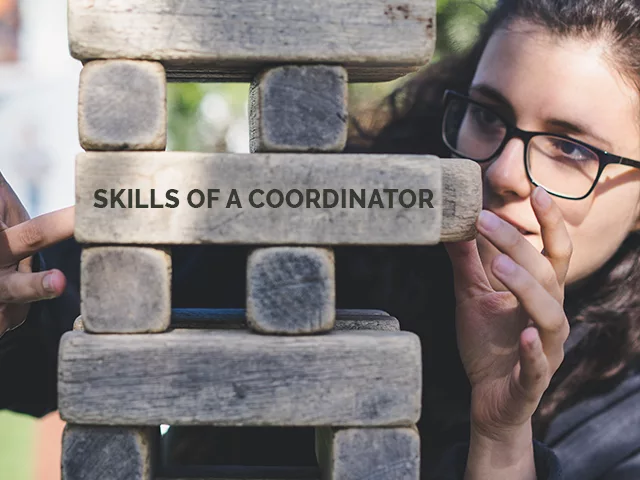Global engagement coordinators are professionals who work in the field of international education. They are responsible for managing and coordinating various international programs and initiatives. In order to succeed in this role, there are a number of key skills that are required. In this article, we will explore the top global engagement coordinator skills required in international education.
Understanding the Role of a Global Engagement Coordinator
Before we delve into the essential skills required for global engagement coordinators, it is important to understand the role they play in international education. Global engagement coordinators are responsible for facilitating international programs and initiatives to increase the global competency of students, faculty, and staff. This includes organizing study abroad programs, cross-cultural engagement initiatives, and international partnerships.
Global engagement coordinators are the key players in developing and implementing international programs and initiatives that help students and faculty develop a global perspective. They work closely with faculty and staff to create opportunities for students to engage with different cultures and perspectives, both on and off campus.
Key Responsibilities and Tasks
Global engagement coordinators have a number of key responsibilities, such as:
- Organizing international programs and initiatives
- Developing partnerships with international institutions
- Supporting students in obtaining visas and travel documentation
- Managing budgets and finances related to international programs
These responsibilities require various skills and competencies. Below are some of the top skills required to succeed as a global engagement coordinator in international education.
Global engagement coordinators are responsible for managing budgets and finances related to international programs. They must ensure that the programs are financially sustainable and that resources are allocated effectively. They work closely with other departments to ensure that programs are aligned with the institution’s strategic goals and objectives.
Global engagement coordinators must also have excellent communication and interpersonal skills. They work with a diverse range of stakeholders, including students, faculty, staff, and international partners. They must be able to communicate effectively with people from different cultures and backgrounds.
The Importance of Global Engagement in International Education
Before we delve into the essential skills required for global engagement coordinators, it is important to understand the importance of global engagement in international education. Increasingly, universities and colleges are recognizing the importance of developing global competencies in their students. This includes an understanding of different cultures, global issues, and the ability to work effectively in diverse teams. Global engagement coordinators play a key role in facilitating these competencies and helping to create a more globally competent student body.
Global engagement coordinators must also be familiar with the cultural norms and customs of different countries. They must be able to navigate cultural differences and ensure that programs are culturally appropriate. They work closely with international partners to ensure that programs are aligned with the needs and expectations of the local community.
In conclusion, global engagement coordinators play a crucial role in international education. They are responsible for developing and implementing programs and initiatives that help students and faculty develop a global perspective. They must have a range of skills and competencies, including financial management, communication, and cultural awareness. By facilitating global engagement, they help to create a more globally competent student body and contribute to the development of a more interconnected and understanding world.
Essential Communication Skills
Effective communication is a key aspect of any successful global engagement program. As a global engagement coordinator, you will need to be proficient in a range of communication skills to ensure that you can effectively communicate with individuals from diverse cultural backgrounds. In this article, we will explore some of the essential communication skills that you will need to master to excel in your role.

Cross-Cultural Communication
One of the most important skills for global engagement coordinators is cross-cultural communication. This involves being able to communicate effectively with individuals from various cultural backgrounds and being aware of cultural differences. Global engagement coordinators must be able to navigate linguistic and cultural barriers and tailor their communication to different audiences. This includes being proficient in various languages and maintaining cultural awareness.
It is important to understand that communication is not just about language proficiency. Cultural differences can also impact communication styles, body language, and even the interpretation of gestures. As a global engagement coordinator, you will need to be sensitive to these differences and adapt your communication style accordingly.
One way to improve your cross-cultural communication skills is to engage in cultural immersion experiences. This can involve traveling to different countries, participating in language exchange programs, or attending cultural events. These experiences can help you to develop a deeper understanding of different cultures and improve your ability to communicate effectively with individuals from diverse backgrounds.
Active Listening and Empathy
Global engagement coordinators must be able to actively listen to the needs of students, faculty, and international partners. This requires excellent listening skills and the ability to understand different perspectives. Active listening also involves demonstrating empathy and understanding towards the concerns of others.
Active listening is not just about hearing what someone is saying. It involves paying attention to non-verbal cues, asking clarifying questions, and providing feedback to ensure that you have understood the message correctly. By actively listening to others, you can build trust and establish strong relationships with your colleagues and partners.
Empathy is also an important aspect of active listening. By putting yourself in someone else’s shoes, you can gain a deeper understanding of their needs and concerns. This can help you to develop solutions that are tailored to their specific needs, which can ultimately lead to more successful outcomes.
Effective Presentation and Public Speaking
Communication skills also extend to presenting and public speaking. Global engagement coordinators must be able to effectively present and communicate information to large groups of people. This may include giving presentations to faculty, staff, and students on international programs and initiatives.
To be an effective presenter, it is important to have a clear and concise message, to use visual aids to enhance your message, and to engage your audience through interactive activities. You should also be able to handle questions and feedback from your audience in a professional and confident manner.
Public speaking can be a daunting task for many people, but with practice, it can become a strength. One way to improve your public speaking skills is to join a public speaking group or take a public speaking course. These experiences can help you to develop your confidence and improve your ability to communicate effectively in front of large audiences.
By mastering these essential communication skills, you can become a more effective global engagement coordinator and make a positive impact in your role. Remember, effective communication is not just about what you say, but how you say it. By being sensitive to cultural differences, actively listening to others, and developing your presentation and public speaking skills, you can build strong relationships with your colleagues and partners and achieve your goals.
Project Management and Organizational Skills
Project management and organizational skills are essential for global engagement coordinators, who are responsible for planning and executing international programs and initiatives. These skills enable coordinators to manage multiple tasks and deadlines, allocate resources effectively, and ensure that all aspects of the program run smoothly.

Effective project management involves breaking down complex tasks into manageable components, setting clear objectives, and creating a detailed timeline. Global engagement coordinators must be able to identify potential risks and develop contingency plans to mitigate them. They must also be able to communicate effectively with stakeholders, including program participants, sponsors, and partners.
Planning and Executing International Programs
Planning and executing international programs requires a deep understanding of cultural differences and the ability to navigate complex logistical challenges. Global engagement coordinators must be able to identify suitable program locations, negotiate contracts with vendors, and coordinate travel arrangements for program participants.
They must also be able to develop curricula that meet the needs of diverse audiences and align with the goals of the program. This requires strong research skills and the ability to collaborate effectively with subject matter experts.
Time Management and Prioritization
Time management and prioritization skills are critical for global engagement coordinators, who must be able to juggle multiple projects and tasks simultaneously while meeting tight deadlines. Effective time management involves setting clear priorities, breaking down tasks into manageable components, and delegating tasks when necessary.
Global engagement coordinators must also be able to manage their own time effectively, taking breaks when necessary to avoid burnout and maintain their productivity. This requires a deep understanding of their own work style and the ability to manage their energy levels throughout the day.
Budgeting and Resource Allocation
Managing budgets and allocating resources is a key responsibility for global engagement coordinators. They must be able to develop detailed budgets that account for all program expenses, including travel, lodging, meals, and materials.
Effective budgeting involves identifying potential cost savings and negotiating with vendors to secure the best possible rates. Global engagement coordinators must also be able to allocate resources effectively, ensuring that program participants have the tools and materials they need to succeed.
Overall, global engagement coordinators play a critical role in facilitating international programs and initiatives. By developing strong project management and organizational skills, they can ensure that these programs are delivered on time, within budget, and with a high degree of quality.
Building and Maintaining Relationships
Building and maintaining relationships is a crucial aspect of any successful global engagement program. Global engagement coordinators must be able to effectively network with international partners, collaborate with internal teams, and engage with students and faculty.
Networking with International Partners
Networking with international partners is a key responsibility of global engagement coordinators. This involves building relationships with institutions from different countries, understanding cultural nuances, and creating successful international partnerships. To do this effectively, global engagement coordinators must be able to communicate effectively, build trust, and understand the needs and goals of their partners. By doing so, they can create long-lasting relationships that benefit both institutions.
For example, a global engagement coordinator may network with a university in Japan to create a study abroad program for students. The coordinator would need to understand the cultural differences between the two institutions and work to build a relationship with the Japanese university. This could involve visiting the university, attending conferences, and communicating regularly to establish trust and understanding. By doing so, the coordinator can create a successful study abroad program that benefits both institutions and their students.
Collaborating with Internal Teams
Collaborating with internal teams is another important aspect of a global engagement coordinator’s role. This involves building relationships with academic departments, administrative units, and other stakeholders to create successful international programs. Global engagement coordinators must be able to effectively communicate the goals and objectives of their programs to internal teams and build buy-in for these initiatives.
For example, a global engagement coordinator may collaborate with the study abroad office to create a new program in South America. The coordinator would need to work with the study abroad office to understand the needs of their students and create a program that meets those needs. This could involve collaborating with academic departments to create courses that align with the program, working with the travel office to coordinate travel arrangements, and communicating regularly with stakeholders to ensure the program is successful.
Engaging with Students and Faculty
Finally, global engagement coordinators must be able to effectively engage with students and faculty. This involves understanding their needs and concerns and tailoring international programs and initiatives to meet their needs. Global engagement coordinators must be able to effectively communicate the benefits of international programs and encourage participation.
For example, a global engagement coordinator may engage with a group of faculty members who are interested in creating a new research partnership with a university in Europe. The coordinator would need to understand the needs and goals of the faculty members and work to create a program that meets those needs. This could involve coordinating travel arrangements, setting up meetings with the European university, and communicating regularly with the faculty members to ensure the program is successful.
Overall, building and maintaining relationships is a critical aspect of any successful global engagement program. By effectively networking with international partners, collaborating with internal teams, and engaging with students and faculty, global engagement coordinators can create successful international programs that benefit all stakeholders.
Conclusion
In conclusion, global engagement coordinators play a critical role in facilitating international programs and initiatives in higher education. To succeed in this role, global engagement coordinators require a range of skills, including communication, project management, and relationship-building. These skills are essential for ensuring successful international partnerships, creating a more globally competent student body and faculty, and preparing students for success in a globalized world.


